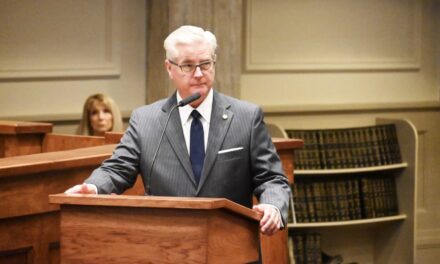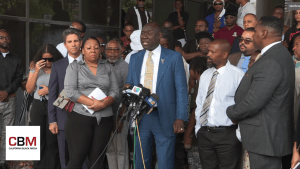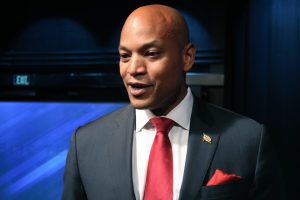By Savannah Tryens-Fernandes
As time runs out for Alabama to decide whether to expand Medicaid, some lawmakers have doubled down on their opposition to the move.
State Sen. Chris Elliott (R-Josephine) said Friday that “it is absolutely not happening on my watch.”
Alabama is one of 12 states that has not expanded Medicaid.
Lawmakers are now faced with a decision in the coming months to either expand the healthcare program with significant federal subsidies or pay to take people off of enrollment lists once the U.S. government’s public health emergency is lifted.
Under the Families First Coronavirus Response Act, which passed in March 2020, states were prevented from removing Medicaid recipients off the program’s enrollment list while the state of emergency was ongoing.
According to Cover Alabama Coalition, a group of community organizations advocating for Medicaid expansion, that means about 200,000 people on Medicaid have kept their insurance throughout the pandemic. Those people would have otherwise been removed from the rolls for various reasons.
Those reasons include children who have aged out of the program or mothers who gave birth but no longer fall within the 60 day window of coverage that the state provides.
During this time, the federal government has stepped in to pay a larger share of the program to alleviate the state’s burden.
Should lawmakers decide not to expand Medicaid once the public health emergency is expected to expire in March 2023, Alabama will lose that money and will spend additional money to determine who is still eligible for the program in a lengthy process done by the Alabama Medicaid Agency.
“If the state does not expand Medicaid, we will have to undergo a redetermination process to see who still qualifies for the program, which costs money,” said Jane Adams, Campaign Director at Cover Alabama Coalition.
“So the reality is, if we don’t expand, we are going to be paying more in state tax dollars to go through a process of removing people from Medicaid than it would cost to keep them enrolled.”
In an interview with The Jeff Poor Show on Friday, State Sen. Clyde Chambliss (R-Prattville) expressed concern about financing Medicaid expansion.
“I’ve heard anecdotal – some people say, ‘It will pay for itself.’ That’s just not the way finances work. If somebody can show me that, we can talk. But I don’t see that happening. It’s a tough haul, and the reason we’re in the financial shape we’re in right now is because we’ve been conservative with our dollars and not overextending ourselves in stuff we can’t maintain long-term.”
The federal government is offering to pay state’s who expand Medicaid 90% of the cost of covering newly-eligible adults for the duration of the program.
And while the state would still be responsible for 10% of the costs, the Public Affairs Research Council of Alabama estimates expansion would “save the state almost $400 million per year over the next six years – more than enough to cover the cost of expansion.”
The program would also extend access to coverage to more than 280,000 people, according to the group.
In a statement provided to AL.com, Gina Maiola, Communications Director for the governor said: “Governor Ivey, especially being from rural Alabama, wants every Alabamian to have access to quality health care. However, on the question of expanding Medicaid or not, Governor Ivey remains concerned with how the state will pay for it long term. Her position on this has not changed.”
In April, Gov. Ivey signed the state’s general fund budget into law which included a $4 million pilot program to extend the amount of time new mothers receive full Medicaid insurance benefits from 60 days to one year beginning in October.
While it remains unclear if the governor will move forward with expansion, more than 70% of Alabamians, including 65% of Republican voters, support expanding Medicaid, according to a February poll commissioned by Alabama Arise.











